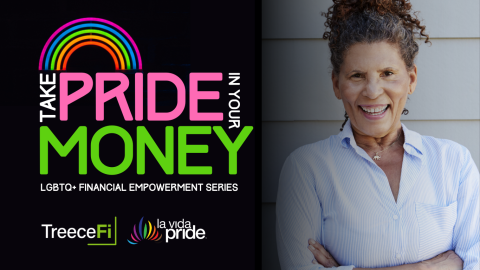
LGBTQ+ Financial Planning: Older Adult Housing
Although LGBTQ+ seniors are seeing improvements in acceptance and assistance in today’s society, they suffered much discrimination in their young and middle adult years. Today’s older adults lived in an era that was far less tolerant of their sexuality. They had to deal with social stigma, prejudice, discrimination, and physical and verbal harassment.
For this generation, fear of loss of employment, housing, and services if their identity was known was stressful.
For some, hiding their identity was a way to survive. Today some still hold that fear of rejection and of being ostracized by their peers.
Bloomberg recently reported that 80% of LGBTQ+ seniors hide their orientation when they enter a long-term care facility. They also are less likely to seek out services like senior center events.
Because of this, there is an enormous demand for inclusive and welcoming senior housing as can be seen from the opening of the Residences at Equality Park on the campus of the Pride Center in Wilton Manors in Broward County, Florida. The Miami Herald reported there were 1,500 applications for 48 newly constructed apartments.
Why is there such a demand?
LGBTQ+ older adults want a friendly living environment. As they age, many feel more vulnerable and fears of rejection, hostility, disapproval, and discrimination may grow.
We see that with older people who are going back into the closet, because they feel more vulnerable. They have to depend on other people. They depend on caregivers, and maybe the assisted living facility staff.
And of course, they're making new friends at a place where they've moved into independent living or assisted living and they don't want to get into fights or disagreements. And so they go back into the closet and they keep their mouth shut.
A lot of older people are generally more conservative. It’s a generational issue. Unlike younger people who are so used to being out, a lot of older people are still uncomfortable. That is probably why some of these facilities are less welcoming to LGBTQ+ individuals, because they may worry that other residents might not like it.
So it doesn't surprise me to hear these discrimination stories.
There are also issues related to cultural competency. Some caregivers, particularly here in South Florida, are from very conservative or religious communities. And I’ve lived through it personally, when we were working with an older gay man who needed caregiving support. His caregiver was set up through an agency and we got her up and running to basically oversee everything he needed.
But at one point, after all this time, she made this comment that if her husband knew she was dealing with all these gay people he would blow a gasket. And I thought, you've got to be kidding.
But we see that and, you know, it may be inappropriate comments, religious comments — where it's like trying to save somebody before they pass away.
It's abusive, demeaning and inappropriate.
One thing you can do now … give serious thought as to what you would like your living situation to be 10, 20, and 30 years down the road and make a plan to have the money in place to make it a reality.
I can help you plan. Schedule a time to chat here.

Take Pride In Your Money: LGBTQ+ Financial Empowerment Series
Sign up at La Vida Pride now to join David Treece for a webinar series that goes beyond traditional financial planning advice. It's not just about saving and planning wisely; it's about standing tall, armed with knowledge and confidence. Equip yourself with the tools to make informed decisions and build a dedicated team of allies who have your back.
Take advantage of this unique opportunity to gain insights and advice from a pioneering LGBTQ+ advocate, access attendee-only resources, and engage in live Q&A sessions.
_ _ _
NEXT ARTICLE: Solo "Gay-ging" Who Will Take Care of Me As I Age?
